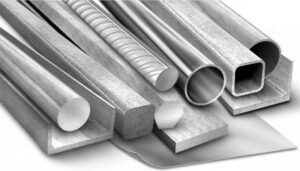
The Ministry of Commerce of China confirmed the intention to increase duties on imports of cars with large engines. Earlier it became known that Beijing is considering such a possibility along with additional restrictions on supplies of whiskey from Europe to the country.
The representative of the Chinese Ministry of Commerce He Yadong said during a press conference on Thursday that there are significant differences between China and the EU regarding the recent decision of the European Commission to impose additional duties on imports of Chinese electric cars to Europe. Beijing has invited EU representatives to visit China for further talks, he said.
According to He Yadong, the Ministry of Commerce is considering the possibility of increasing duties on imports of high-volume gasoline-powered cars into China and will make a decision after studying relevant factors.
If Beijing makes such a decision, German automakers will be the most seriously affected, said Dongshu Cui, president of the China Passenger Car Association (CPCA).
Total imports of cars with engines larger than 2.5 liters from the EU fell 13% to $10.2 billion in the first eight months of this year, CPCA data showed.

The Cabinet of Ministers has exempted generators, transformers and other goods important for the heating season from VAT and import duties, Prime Minister Denys Shmygal said.
“Today the Cabinet of Ministers will approve a resolution, thanks to which important goods for the passage of this heating season will be exempt from payment of VAT and import duty,” Shmygal said at a government meeting on Tuesday.
These include gas generators, electric motors and generators, electric generating sets and rotating electrical converters, transformers, electric batteries, electric water heaters and heaters, and some other energy and heat supply goods.
“This is important to speed up repairs now, improve light and heat supply, meet public demand and reduce prices of related products,” he added.

In response to a temporary, for a year, full trade liberalization by the EU, Ukraine is ready to abolish duties on European goods, said Deputy Minister of Economy – Trade Representative of Ukraine Taras Kachka.
“So that we can continue to talk about maintaining the zero-to-zero regime for longer than 12 months, we are ready to introduce such a mechanism now,” Kachka said during a meeting of the committee on finance, tax and customs policy on Thursday.
He added that Ukraine intends, first of all, to abolish duties on agricultural products from the EU.
The trade representative indicated that he sees the need to protect the Ukrainian market from goods from those countries with which there are no preferential terms of trade.
“The competition that we want to defend against is Turkey, China and other countries with which we do not have a preferential trade regime,” he said.
“Therefore, in order to work with the EU on a permanent customs-free trade regime, we want to take such a step. And in the context of our candidacy for the EU, this is very correct and appropriate,” Taras Kachka added.
“It is economically beneficial for us. The only industry where there is an economic imbalance is pork meat, but here it is more likely due to African swine fever, as well as cheese. We had a discussion on cheese whether the market should be protected. On the one hand, in In recent years, there has been an increase in cheese imports, mainly from Poland, but the total share of imported cheeses does not exceed 25%… There are no clear signs of harm for Ukrainian cheese producers,” Kachka explained.

Canada, following the UK and the EU, is canceling all duties on imports of goods from Ukraine, Canadian Prime Minister Justin Trudeau announced after meeting with President Volodymyr Zelensky in Kyiv on Sunday.
“This is a good continuation of the initiative of the EU and Britain, which confirms the interest of developed countries to involve the Ukrainian economy in their own industrial and trade chains,” Yulia Sviridenko, First Deputy Prime Minister and Minister of Economy, commented on this decision.
She recalled that on the eve of this meeting, she also discussed with Canadian Minister of International Trade Mary Angie the whole range of economic cooperation measures that both countries intend to implement.
“For our ministry and Ambassador to Canada Yulia Kovaliv, this is an ambitious work program for this year,” Sviridenko stressed.

Ukraine and the UK have legally secured the abolition of import duties and tariff quotas in bilateral trade by signing a relevant agreement, the Ministry of Economy of Ukraine reported on Wednesday.
“The agreement will be valid for 12 months, but can be extended by agreement between the parties for a new period,” the release states.
According to it, now Ukrainian producers can export more products to the British market. First of all, we are talking about flour, grain, dairy products, poultry meat and semi-finished products, tomato paste, honey, corn, wheat, juices, mushrooms, and sugar – these are the goods Ukraine traditionally exports to the UK.
The Ministry of Economy noted that in 2021, the trade turnover between Ukraine and the UK increased by almost 57%, to $2.2 billion, with exports especially intensified (up by 62%), exceeding $1 billion.
The ministry recalled that the European Union also recently announced its intention to cancel the collection of all import duties on Ukrainian goods for a year.

The Ministry of Trade and Industry of the Arab Republic of Egypt has canceled preventive import duties on steel billets, rebar and aluminum products regardless the country of origin, including from Ukraine.According to an official posting on the website of the Egyptian Ministry, Minister of Trade and Industry Nevin Gamea has issued two orders to terminate resolutions No. 907 of 2019 and No. 168 of 2021, introducing preventive measures against the import of steel billets, rebar and aluminum products.According to this information, these two decisions come into force the next day after their publication in the Egyptian Gazette.As the minister explained, both decisions were made to support the sectors of the economy due to high inflation rates, growth in energy, materials and to meet the production needs of Egyptian companies.In turn, Ibrahim al Seginy, Assistant Minister for Economic Affairs and Head of the Commercial Processing Sector, explained that the sector received a number of complaints from the local industry, as the introduction of preventive duties affected these sectors. At the same time, it was recorded that there was a significant increase in prices for these goods, as well as the lack of a sufficient number of local substitute products to meet the needs of the local market. It also affected the high cost of finished goods, which negatively affects the competitiveness of Egyptian exports.According to the Ministry of Economy of Ukraine, on April 15, 2019, Egypt announced the introduction of temporary protective duties on steel products (for fittings in the amount of 17-25%, semi-finished products made of iron and unalloyed steel – 10-16%, depending on the price).This measure was introduced by Egypt to protect local steel producers from an increase in steel supplies to the country after the closure of the American market (as a result of the US government’s imposition of barrage measures on steel and retaliatory measures from other countries, including the EU). These restrictions were supposed to be valid until April 11, 2022.